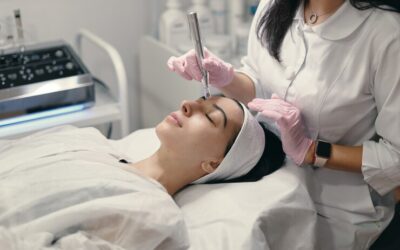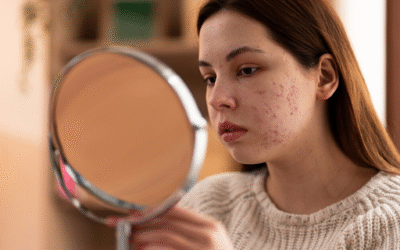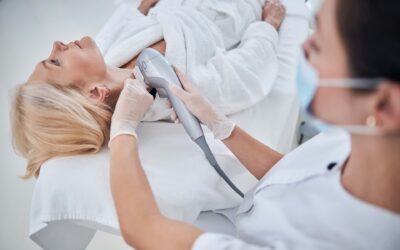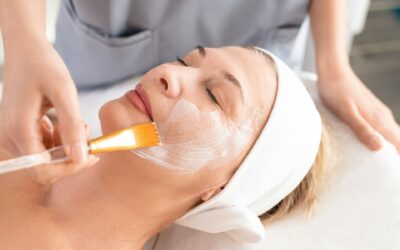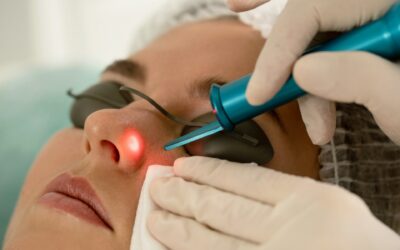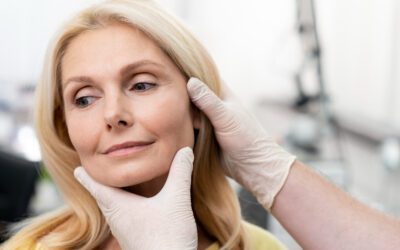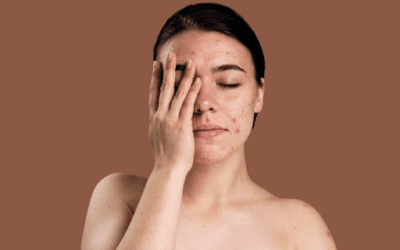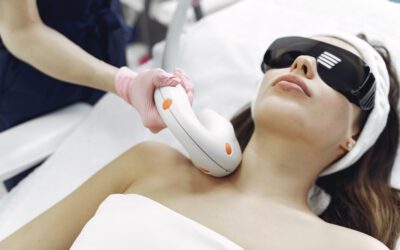Dealing with stubborn acne can be frustrating. Acne is more than just a skin issue; it affects how we feel about ourselves. We often try different methods to clear it up, but sometimes those pesky pimples just won’t go away. Understanding what causes stubborn acne is the first step to managing it more effectively.
Acne can be triggered by many factors like hormones, stress, and diet. Knowing what’s causing your acne can help you choose the right treatments. For some, a simple change in skincare routine can make a big difference. Washing your face regularly and using non-comedogenic products can help keep your skin clean and reduce breakouts.
If over-the-counter treatments don’t seem to work, it might be time to consider stronger solutions or seek professional help. Sometimes, medical treatments are necessary to tackle stubborn acne effectively. This article will guide you through understanding acne, effective skincare routines, available treatments, and when to consider professional advice. By following these steps, you’ll be on your way to clearer skin and improved confidence.
Understanding the Causes of Stubborn Acne
Stubborn acne can be caused by several factors. Hormones play a significant role, especially for teenagers and women going through menstrual cycles or pregnancy. During these times, your body produces more androgens, which can increase oil production in the skin. This excess oil clogs pores and leads to acne.
Stress can also make acne worse. When you’re stressed, your body produces cortisol, a hormone that can trigger oil production. More oil means more chances for your pores to get clogged, leading to breakouts. Paying attention to your stress levels and finding ways to relax can help manage acne.
Diet is another factor. Foods high in sugar and dairy can sometimes cause acne flare-ups. These foods can lead to increased insulin levels, which can cause your skin to produce more oils. Keeping a food diary to track what you eat and how your skin reacts can help identify any food triggers. By understanding these causes, you can take better steps to manage and prevent stubborn acne.
Effective Skincare Routines to Combat Acne
An effective skincare routine can make a huge difference in managing acne. The first step is to cleanse your skin twice a day with a gentle, non-comedogenic cleanser. This helps remove dirt, oil, and makeup that can clog pores. Look for cleansers that contain ingredients like salicylic acid or benzoyl peroxide, which fight acne-causing bacteria.
After cleansing, use a toner to balance your skin’s pH levels. Toners can help remove any leftover impurities and prepare your skin for the next steps. Choose a toner that is alcohol-free to avoid drying out your skin. A toner with ingredients like witch hazel or tea tree oil can also help reduce inflammation.
Moisturizing is an essential but often overlooked step in acne care. Even oily skin needs hydration. Pick a lightweight, oil-free moisturizer to keep your skin hydrated without clogging your pores. Lastly, don’t forget to apply sunscreen every morning. Sun exposure can worsen acne and lead to dark spots or scars. Use a sunscreen that is non-comedogenic and has at least SPF 30. By following this skincare routine consistently, you can reduce breakouts and maintain healthier skin.
Over-the-Counter Solutions for Acne Treatment
Over-the-counter (OTC) solutions can be very effective in managing mild to moderate acne. These products usually contain active ingredients designed to target acne in different ways. Here are some common types of OTC treatments:
- Benzoyl Peroxide: This ingredient kills bacteria that cause acne and helps remove excess oil and dead skin cells. It comes in various forms, including creams, gels, and washes. Start with a lower concentration to see how your skin reacts.
- Salicylic Acid: This is a beta hydroxy acid that helps unclog pores and reduce swelling and redness. It’s commonly found in cleansers, toners, and spot treatments. Use it regularly to keep pores clear and prevent breakouts.
- Alpha Hydroxy Acids (AHAs): These include glycolic acid and lactic acid, which help exfoliate the skin and promote the shedding of dead skin cells. They can improve acne as well as skin texture and tone.
- Sulfur: This ingredient helps dry out the surface of the skin to absorb excess oil that may contribute to acne. It’s often found in masks or spot treatments.
When using OTC treatments, it’s important to follow the instructions on the product labels. Using too many products at once can lead to irritation. Be patient, as it may take several weeks to see improvement in your skin. If you experience severe dryness or irritation, it might be best to consult a professional.
When to Seek Professional Help for Acne
Sometimes, over-the-counter treatments and good skincare practices aren’t enough to tackle stubborn acne. If your acne is severe, causes significant discomfort, or leads to scarring, it might be time to seek professional help. A dermatologist or skincare specialist can provide more robust solutions tailored to your specific needs.
Prescription medications can be effective in treating persistent acne. These include topical treatments like retinoids, which help unclog pores and reduce inflammation, and oral medications like antibiotics, which target the bacteria that cause acne. In more severe cases, medications like isotretinoin (Accutane) may be prescribed, but these come with potential side effects and require close monitoring by a healthcare professional.
Professional treatments such as chemical peels, laser therapy, and microneedling can also offer significant benefits. These treatments help reduce acne bacteria, promote skin renewal, and improve overall skin texture. Consulting with a skincare expert can help you understand the best options for your skin type and acne severity.
Final Thoughts
Managing stubborn acne can be challenging, but there are effective steps you can take. By understanding the causes, maintaining a proper skincare routine, and using over-the-counter treatments, you can significantly improve your skin. However, knowing when to seek professional help is crucial for achieving the best results.
At Monarch Medical Skin and Laser, we’re committed to helping you achieve clear, healthy skin. If over-the-counter solutions aren’t enough, don’t hesitate to reach out. Our team of experts can provide tailored acne treatments and advice to help you manage stubborn acne effectively. Ready to take the next step in your skincare journey? Contact Monarch Medical Skin and Laser today to schedule a consultation.

